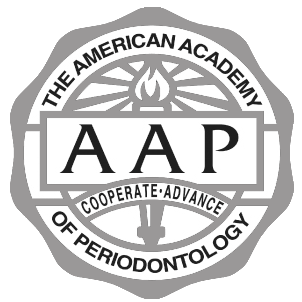Tips to Care for a Dental Implant Restoration

Individuals that have lost teeth may need to consider a dental implant restoration. Since the teeth are meant to work together, a missing tooth can disrupt the balance of your smile and cause dental issues. The presence of the gap between the teeth can make the teeth shift out of alignment. After getting dental implants, it is important to take care of the new restoration. This article outlines how to do so.
Caring for dental implant restorations
After getting a dental implant, it is necessary for patients to learn about the maintenance process. An implant can last several years or a lifetime, but only with adequate care. Fortunately, the maintenance requirements are not different from routine care for natural teeth. The following are tips to note:
Brush thoroughly twice daily
There are unique toothbrushes produced for patients with dental implant restorations, which usually have bristles that can clean hard-to-reach areas. The brushing process should continue for at least two to three minutes to properly remove any plaque that may have formed on the surface. Keeping the teeth clean is necessary to keep the oral cavity healthy.
Floss daily
Patients need to floss at least once daily, but preferably after every meal. A good quality dental floss can help get rid of food particles that get trapped between the teeth. Leaving these particles between the dental implants will encourage the build-up of bacteria that cause cavities. Extra care is essential when flossing to prevent damage to the gum or restorations.
Avoid hard and sticky foods
Biting or chewing hard foods can cause damage to the dental implant restoration, which means dental appointments for repairs or replacement. In the first few weeks after implant placement, patients need to avoid sticky and hard foods that might disturb the implant placed in the jaw. Examples of treats to avoid are hard candies, peanuts, caramel and hard nuts.
Avoid smoking and excessive alcohol intake
Smoking does not only disrupt the healing process, but it also compromises the bone structure and how the implants fuse with the bone. Although it is acceptable to take alcoholic beverages occasionally, drinking excessive alcohol can cause oral issues.
Book regular dental appointments
Visiting the dental office regularly is one of the most effective ways to ensure that every dental implant restoration stays functional and in good condition. Patients will be able to ask any questions they have during the appointment. The dentist will use these visits to monitor the health of the oral cavity, bone density, gum tissue and the state of the dental implant. If any issues are detected, they will be treated on time before they worsen. Patients will also undergo a professional cleaning to remove accumulated plaque and tartar from the teeth.
Bottom line
Caring for dental implant restorations adequately is crucial to increasing their lifespan. Dental implants can survive a lifetime of use, and interestingly, they can be cared for like natural teeth. The general dentist will guide you on how to care for implant restorations when visiting the office for an appointment.
Request an appointment here: https://somervilledentist.com or call Assembly Dental at (857) 300-5779 for an appointment in our Somerville office.
Check out what others are saying about our services on Yelp: Read our Yelp reviews.
Related Posts
Dental implants are a reliable way to replace missing teeth. They can improve how you eat and speak, as well as enhance the appearance of your smile. Choosing the right implant dentist ensures a successful treatment outcome. Here are five essential questions for an implant dentist during your initial consultation.Choosing the right dentist for implants…
Periodontics focuses on the health of the jawbone and gums. As part of a comprehensive dental care plan, general and family dentists often integrate periodontics into their services. This specialized field is concerned with preventing, diagnosing, and treating periodontal disease while also supporting tooth replacement and enhancing the smile. Understanding the basics of periodontics can…
Dental implants function like natural tooth roots, providing a secure foundation for artificial teeth. An implant dentist follows a structured process to ensure the implant integrates properly with the jawbone, resulting in a functional and natural-looking restoration. Knowing what to expect at each stage of treatment can ease patient concerns and ensure proper preparation.The dental…
When tooth loss occurs, simple tasks such as chewing and speaking may be difficult, and the appearance of a smile can be affected. An implant dentist uses dental implants to address these issues, as the restorations integrate directly with the jawbone, creating a long-lasting foundation for replacement teeth. The process not only restores the look…






